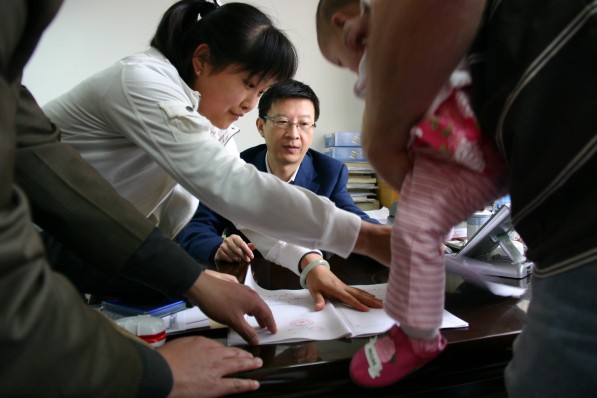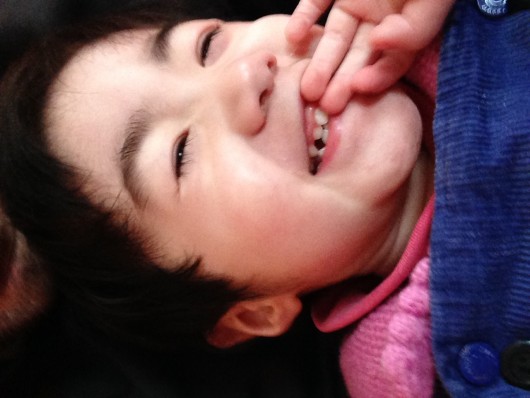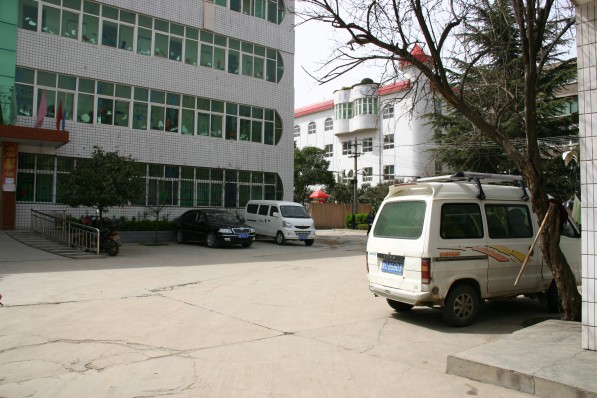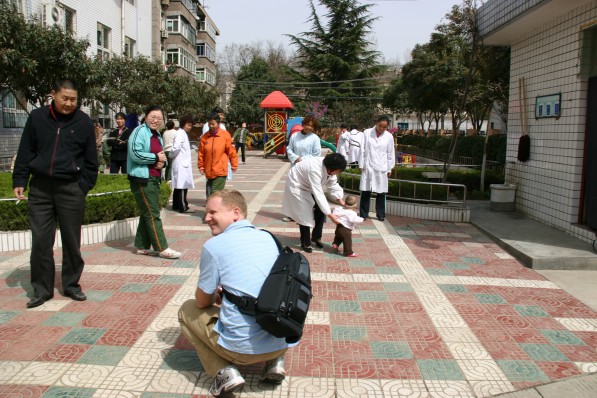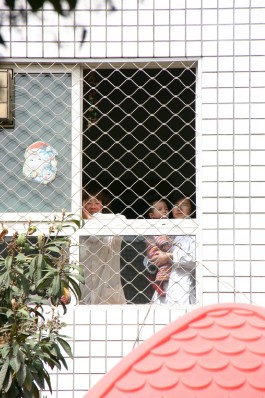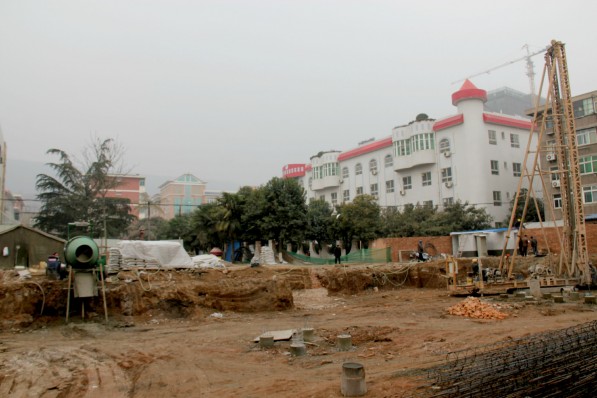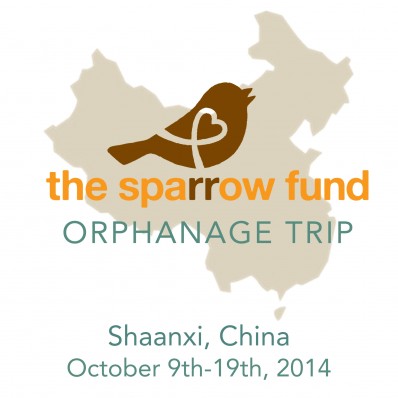I still read them, the blogs of families traveling in China meeting their children and bringing them home. The images of their first moments together and a mother’s first words after meeting her child never fail to draw me in.
But, this blog was different. This post was the first of what I hope is many. A child we had served and quickly fell for is now a son. He was a favorite in our class; he loved stickers and toy cars. He raced to pop the bubbles I blew and to tell the ayis he called Mama all about it.
I knew he’d be the first we got to see come home. He’s got a family, we whispered to each other with smiles on the first day we were there. Six weeks home, and we got word that his family was there right where we were, but they were there to bring him home.
My fingers couldn’t keep up with my heart as I raced to click on the link to their blog. I quickly skimmed the words, anxious to see the pictures of my little friend with his new parents. There I lingered for a long time, unprepared for what it would bring out in me. This is good; this is good; he needs a family; this is good. I knew that, but something unsettled me. There I sat with a lump in my throat, staring at the screen in front of me, wondering what was wrong with me.
In his new family’s pictures, I saw a nanny I knew. She was shorter than me and knew no English, but she smiled all the time so large her eyes disappeared. She nodded her head and chatted many Dui, Dui, Duis at our team. We didn’t need common words to know she appreciated us. I’d pat her back and tell her what a good job she was doing. She didn’t know what those words meant, but she knew what I meant, and she’d nod and smile some more.
In their pictures, I saw the director I knew, the same man who delivered my daughter to me. All the children called him Baba, and he knew them all by name. He had stood in the hallway of the orphanage studying each page of the book we brought with updates on children who had been adopted from the orphanage. He would point to a child on the page touching their picture as if he was touching their actual cheek.
As the new mother shared about their first moments together, she also shared that the nanny and director quietly slipped out without saying goodbye. The people who loved him, the woman he called Mama who snuck him little snacks and zipped up his coat to keep him warm, the director who called him a strong boy and laughed as he raced down the hall on a little bike—they just slipped out with no goodbye and no expectations to see him ever again.
I spent three years reading everything I could get in front of me on attachment and loss and trauma, preparing for the little Chinese person I’d one day meet in a smoke-filled office in a bustling city. When that day came, I took my sweet baby out of her ayi’s arms, and I took her loss as well. My empathy for her and the foundational building of our attachment drove me; every action was intentional as I sought to be an agent of healing for her.
As I pressed on in that journey, I confess that I rarely thought of the agents of healing who were there before me. Before I even knew who she was and what she looked like and where she lived, those ayis she called Mama while I was still reading books were there. They weren’t there like I would be there, her exclusive Mama ready to meet her every need day or night. But, they were there when I wasn’t. And, when she lost them, they lost her too. While we were pacing in our posh hotel room and admiring this sweet little thing who now was our daughter, they returned to the orphanage, to what they do everyday, caring for children to help them leave. Their lives are riddled with loss, living in a constant flux of happiness and grief as they celebrate the future one of their children gets to have and say goodbye again to a child who made them proud to be called Mama. I wonder if they learn to guard their hearts and or if some emotionally flat line.
I know why I was unsettled, why I was staring in front of me at a blog post waiting for something to click. I have been changed after serving at the orphanage six weeks ago. I see things more fully, in a way I haven’t seen before. The adoption triad—it’s familiar verbiage to those of us in the adoption community—the adoptee or adopted person, the adoptive parents, and the birth parents. But, there’s more to the picture. There are those who care for those children for weeks, months, years, day in and day out. There are those who feed them, nurture them as they know how though it may look different than how we define it, nurse them after surgeries, teach them songs they knew from their own childhood, and then bundle them up for a long car ride, hand them to another, and slip out without saying goodbye.
Adoption is a good thing in a world that is broken. I just see a bit more of the broken part now.
